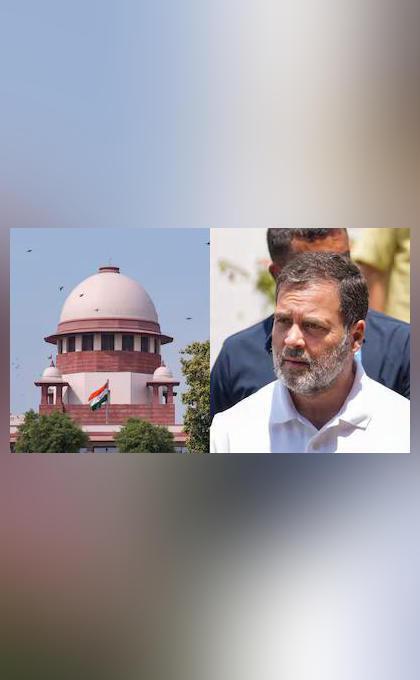
Why Ask on Social Media & Not in Parliament: SC to Rahul on ‘Land Grab’ Claim
Recent statements made by Congress leader Rahul Gandhi regarding China’s alleged “land grab” in India have landed him in hot waters with the Supreme Court. The apex court has rebuked Gandhi for making such claims on social media instead of asking questions in Parliament, where he has the platform to do so. This latest development has sparked a heated debate on the importance of accountability in public discourse and the role of social media in shaping our understanding of current events.
The controversy began when Gandhi made a statement on Twitter in 2020, claiming that China had occupied 2,000 square kilometers of Indian land. The statement was met with widespread criticism and skepticism, with many questioning the accuracy of Gandhi’s claim. The Chinese government denied the allegations, and the Indian government remained silent on the matter.
The Supreme Court’s recent intervention has added a new layer of complexity to this controversy. In a stinging rebuke, the court stayed a defamation case against Gandhi, but not before expressing its disappointment at Gandhi’s decision to make such claims on social media rather than in Parliament. The court’s remarks have raised important questions about the role of social media in public discourse and the accountability of public figures.
Gandhi’s claim about China’s “land grab” was made during a period of heightened tensions between India and China along the Line of Actual Control (LAC). The standoff had begun in April 2020, and tensions remained high until a disengagement process was initiated in February 2021. Gandhi’s statement was seen by many as an attempt to capitalize on the public’s anxiety about the standoff and score political points.
However, the Supreme Court has made it clear that such claims are not only irresponsible but also potentially damaging to national interests. In its order, the court asked Gandhi how he knew that 2,000 square kilometers of Indian land had been occupied by China. The court’s question highlights the lack of evidence to support Gandhi’s claim and the potential consequences of making such allegations without basis.
The court’s rebuke has also sparked a debate about the importance of accountability in public discourse. In an era where social media platforms are increasingly being used to shape public opinion, it is essential that public figures are held accountable for their statements. The Supreme Court’s remarks suggest that Gandhi’s decision to make such claims on social media rather than in Parliament was a deliberate attempt to avoid accountability.
In a parliamentary democracy like India, it is the duty of elected representatives to hold the government accountable for its actions. However, when public figures like Gandhi make claims on social media, they are not subject to the same level of scrutiny and accountability as they would be in Parliament. This lack of accountability can lead to the spread of misinformation and the erosion of trust in public institutions.
The Supreme Court’s remarks have also raised questions about the role of social media in shaping our understanding of current events. Social media platforms have become increasingly important for disseminating news and information, but they also have a tendency to amplify misinformation and conspiracy theories. The court’s rebuke of Gandhi serves as a reminder of the importance of verifying information before sharing it on social media.
In conclusion, the Supreme Court’s rebuke of Rahul Gandhi over his “land grab” claim serves as a timely reminder of the importance of accountability in public discourse. As public figures increasingly turn to social media to shape public opinion, it is essential that they are held accountable for their statements. The court’s remarks also highlight the lack of evidence to support Gandhi’s claim and the potential consequences of making such allegations without basis.
Ultimately, the controversy surrounding Gandhi’s claim serves as a reminder of the importance of responsible leadership and the need for public figures to verify information before sharing it with the public. As we move forward in an era where social media plays an increasingly important role in shaping our understanding of current events, it is essential that we prioritize accountability and fact-checking to ensure that public discourse remains informed and responsible.






